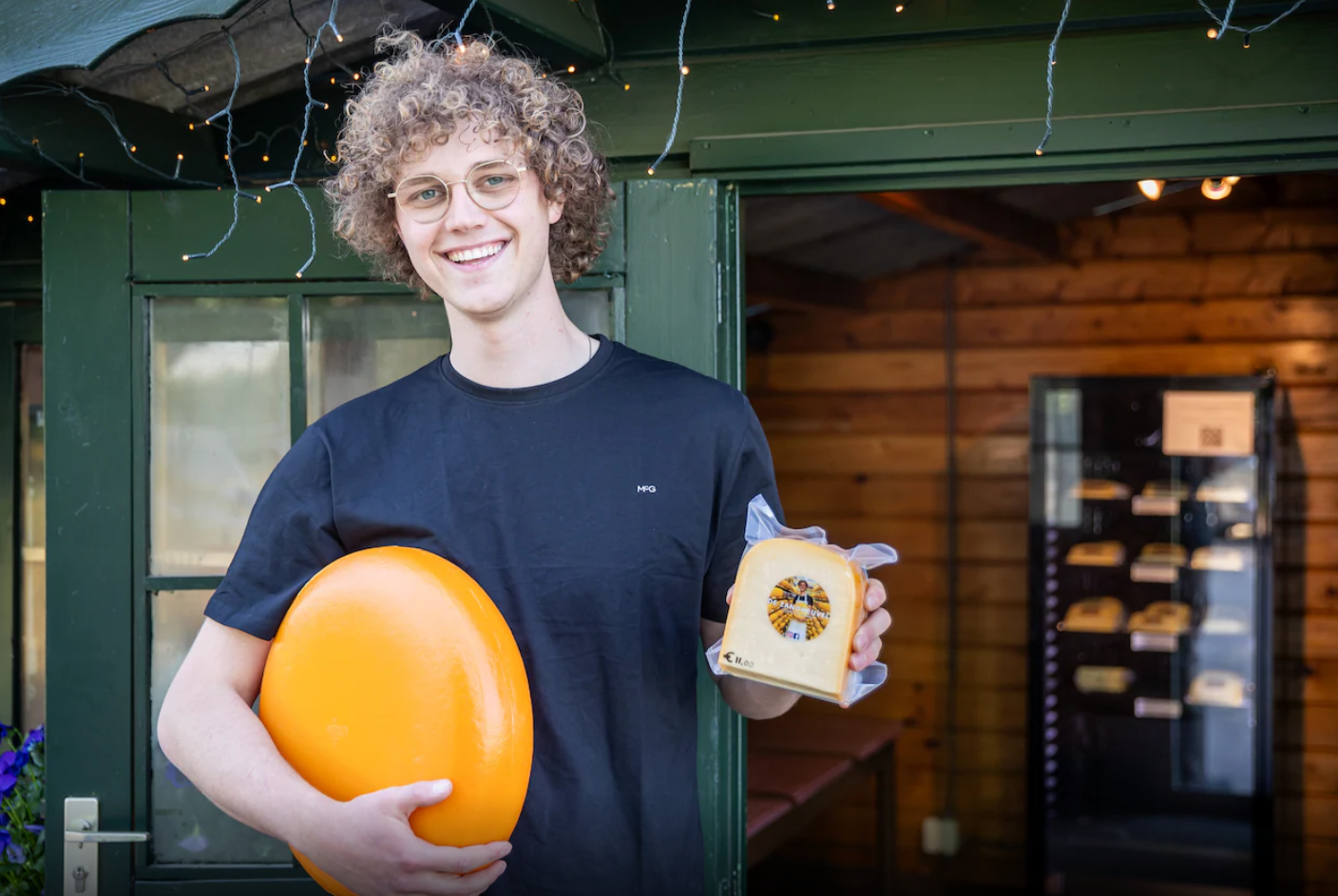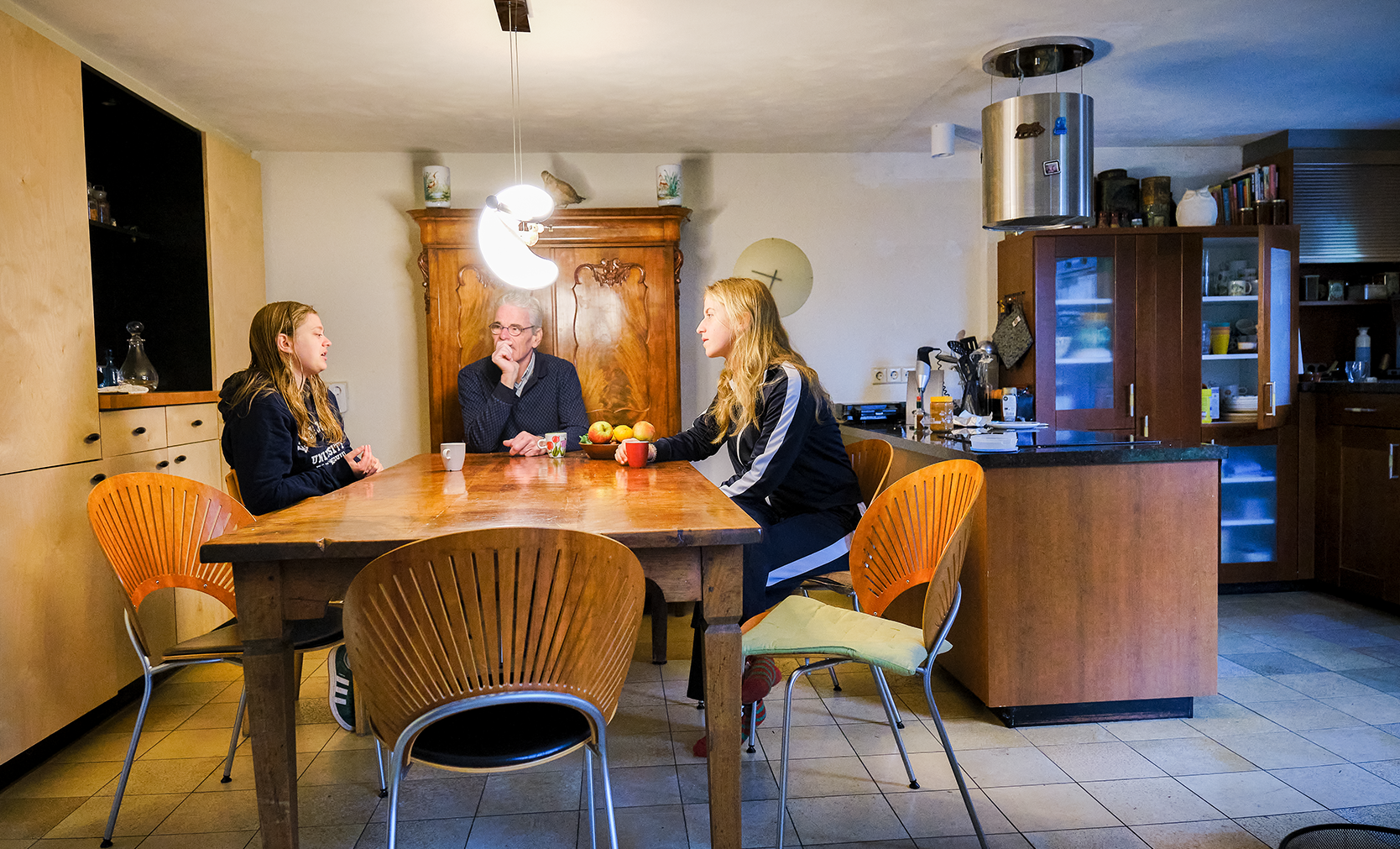Text Konstantina Togka
| Thesis Awards |
|---|
| University Fund Wageningen hands out four Thesis Awards every year for excellent Master’s theses (with a minimum grade of 9). One prize is awarded in each educational domain. These are the Life Sciences, Social Sciences, Environmental Sciences and Agrotechnology & Food Sciences. The writer of the best overall thesis of the year is selected from the four winners. This time that was Margaretha Antonia Veltman. |
Adrià Fontrodona Bach (26) comes from sunny Barcelona, but loves snow so much he made it the topic of his thesis. The alumnus of the MSc in Earth and Environment researched changes in snow depth using data from more than 6000 monitoring locations across Europe. It was tough, says Bach. ‘But the first time you do research on your own, it is normal to lose your way a bit.
Bach’s research revealed that the average snow depth has been decreasing over the years, and that the decrease accelerating after the 1980s. But he also found that there were places where the snow cover has stayed the same or even increased. The study was published in Geophysical Research Letters and came in for a lot of attention in the media. After graduating, Bach got a job as a research assistant in Zurich, where he is studying glaciers. In a few months, he will start his PhD in Birmingham on the subject of… yes: snow.
It’s normal to lose your way a bit
African rice
At first, Margaretha Antonia Veltman (27) wanted to study the evolution of African rice in Suriname for her Master’s thesis in Biology. After a few months, however, she decided to change her research question and study the origins of African rice in West Africa. ‘There was more data available on that. If I changed my research question it would be easier to answer it.’ It proved to be a good decision: Veltman’s thesis was published in PLOS One and won her the prize for the best WUR Master’s thesis (see inset). Veltman has now embarked on a PhD at the natural history museum in Oslo, Norway, on the conservation genomics of wild orchids.
Out of his comfortzone
Coen Frederiks (28), a student of Organic Agriculture, studied the costs of the EU’s registration procedure for new biological pesticides, and compared them with the American pesticide regulation systems. This meant stepping outside his comfort zone and delving into macro-economics. Frederiks discovered that the EU spends much more time on screening and registering new biological pesticides than the US does. The result: the EU misses out on both economic and environmental benefits. Frederiks is now working in Brussels on the regulations for the European biotechnology sector.
Oil droplets
Food Technology alumnus Sten ten Klooster (24) chose a challenging topic for his thesis. In consultation with his supervisor, he decided to study an innovative technique for making emulsions – mixtures of tiny oil droplets and water, such as mayonnaise, salad dressing or certain medicines. He focussed on the way individual oil droplets can be created. This is a complex topic for which he had to read a lot of literature and take a course in fluid mechanics. It was hard work, but it bore fruit, because his research led Ten Klooster to discover the conditions necessary for droplet formation. ‘It would be very favourable for industries to adopt this method since it requires about 20 times less energy and delivers better quality products,’ says Ten Klooster. He is now working on his PhD at WUR, on the oxidation of oil in emulsions.
Six tips for a first-class thesis
| 1. Be curious | All four winners agree on this one: to do top-notch research you have to be genuinely interested in the topic. ‘Unless your curiosity is sincere, you won’t ask the right questions,’ says Adrià Fontrodona Bach |
| 2. Take the litarature study seriously | The literature search might not be the most exciting part of a thesis but it is crucial. ‘Being critical of the articles you read can help you decide on the focus of your thesis,’ says Sten ten Klooster. |
| 3. Never give up | They ended up producing an outstanding thesis, but that doesn’t mean these Master’s students didn’t struggle or have doubts. Their message: remember that everyone goes through bad patches, and stay positive. |
| 4. Make mistakes | ‘The more often you fail, the more you learn from your mistakes,’ says Coen Frederiks. ‘In fact, if you want to stand out, you need to be brave enough to try new things and accept the risk of failure.’ |
| 5. Be adaptable | Sometimes things happen that are beyond your control, says Margaretha Antonia Veltman. ‘Being able to adapt is a necessary trait.’ Even if, like her, it means a complete change of topic for your thesis. |
| 6. Be independent | A thesis supervisor is not always an expert in the field you are doing your research, which means you have to work independently. You can ask for help elsewhere, perhaps by reaching out to specialists in the field. |

 Illustration: Geert-Jan Bruins
Illustration: Geert-Jan Bruins 

